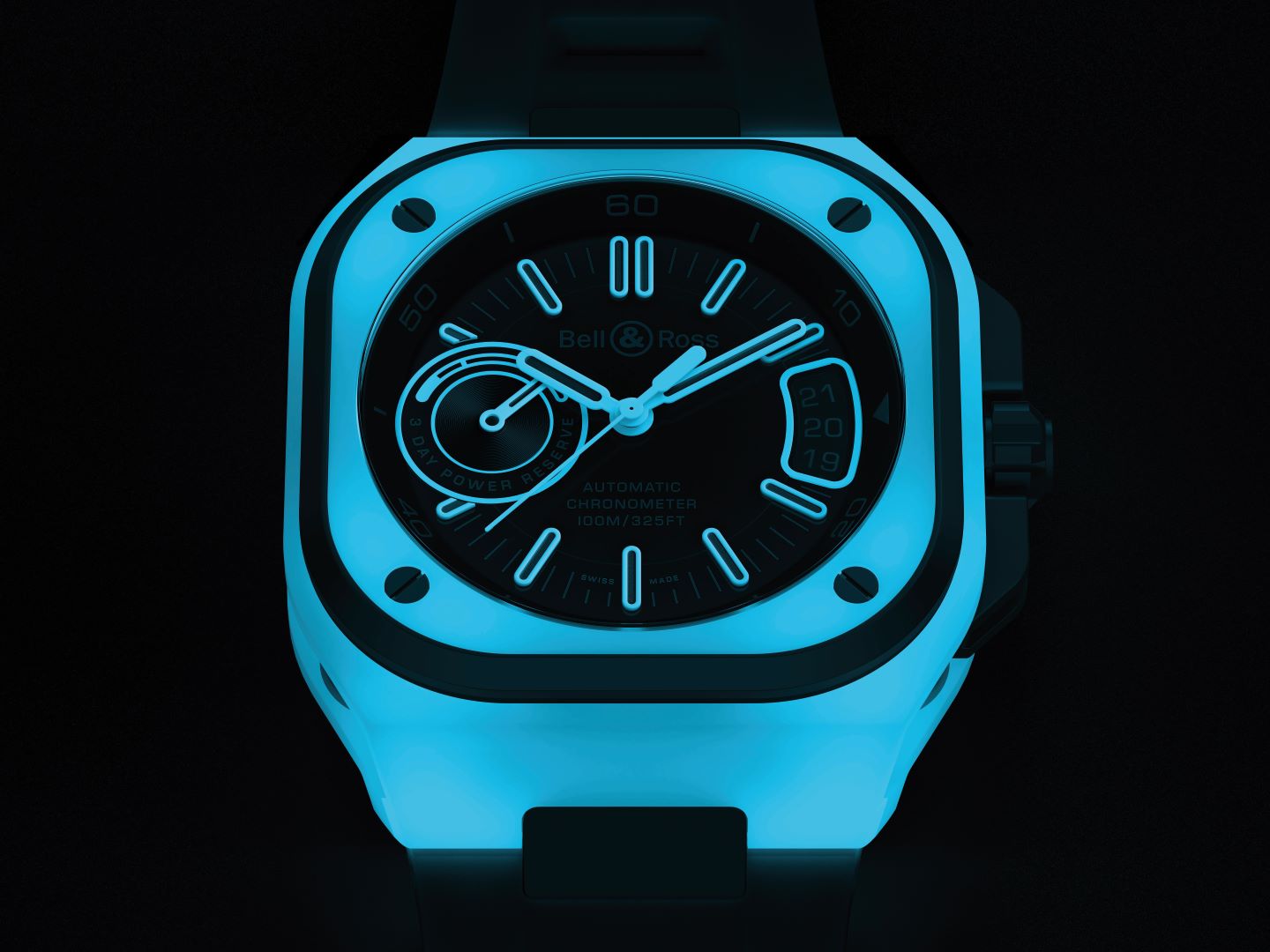
Powering this luminous timepiece is the BR-CAL.323, a COSC-certified manufacture movement, equipped with 70 hours of power reserve (All photos: Bell & Ross)
When submerged in the all-consuming deep, devoid of light, the legibility of one’s watch is crucial to timekeeping accuracy. It is therefore only fitting that Bell & Ross, renowned for its prowess in producing superior technical watches, crafts a piece that pushes the envelope of performance, aesthetics and illumination.
Framed in an icy, standout hue by day, and a vivid, futuristic glow when dark, the Franco-Swiss maison’s newly unveiled BR-X5 Blue Lum demonstrates the manufacture’s bold and innovative spirit with masterful use of titanium and photoluminescent materials to construct not just a dial, but also a fully luminescent case. The impressive instrument, part of the brand’s Lum saga, represents a chromatic successor to its green counterpart launched last year.
br_day.jpg

The 41mm case, in the company’s signature square shape, alternates between the photoluminescent composite material LM3D and black DLC microblasted grade 2 titanium, the latter commonly found in aeronautics. A carved titanium piece houses the mechanism, flanked by two LM3D shields, to achieve potent tonal brilliance while retaining a sense of overall lightness.
Within, the matte black dial forms a sleek base upon which the graduated hour and minute indices, date window at 3 o’clock and three-day power reserve sub-dial at 9 o’clock are presented in saturated contrast. Coupled with the skeletonised hands filled with Super-LumiNova, the result is visually urban and practical in its pronounced readability. This certified chronometer is further equipped with the high-precision BR-CAL.323 automatic mechanical movement, boasting a staggering 4Hz frequency and quick date correction device for optimal adjustability.
This article first appeared on Oct 28, 2024 in The Edge Malaysia.


